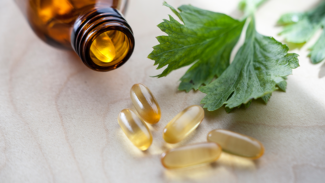Hi Gorgeous,
My supplement plan has changed over the past ten years as many times as my wardrobe. It’s not a one-size-fits-all fixed approach, which can make supplement selection a bit daunting. As always, I recommend that you work with a holistic practitioner or functional medicine MD to find the right supplements for your needs. And of course make sure you’re getting most of your vitamins and minerals from whole foods, but if you’re going supplement there are some general guidelines.
I may be a nutrition and science nerd, but I’m not a MD. So I reached out to one of my trusted friends, Aviva Romm, Integrative MD, and asked her to weigh in. Aviva uses her combined skills as a Yale-trained MD and Board Certified family physician, midwife, and herbalist to help women not only heal their bodies and minds, but transform their lives. Our conversation walks you through how to choose supplements whether you’re a college freshman, mother, busy biz maven or world-traveling retiree. Let’s get started!
KC: How do you begin building a supplement plan that meets your needs?
AR: Supplements come in handy because they bridge the gap between your diet and your phytonutrient needs—helping you feel on top of your game. But standing at the shelves in a health food store can be overwhelming when you’re trying to add supplements to your life. There are so many choices!
Here are a few tips to make choosing supplements easier:
- Seek guidance from a professional first: Rather than just buying a bunch of random supplements, make the investment in an appointment with an integrative or functional medicine doctor, a naturopathic physician, or a savvy nutritionist to hone in on your specific needs. You can find a functional medicine doctor here. This will actually save you time and money. Ideally, she will give you a detailed plan of the best supplements for YOU, along with brand recommendations.
- Go to the right place: You can often find better quality, organic, non-GMO, food-based supplements at higher-end natural foods stores.
- Ask for directions while shopping: Natural food stores have staff dedicated to helping you, which comes in handy if you haven’t had a consultation with a health professional yet or have additional questions. They are paid by the store, not the supplement companies. While they are not experts and should not be giving medical or health advice, they can help you narrow down the choices and make an educated decision.
- Pick a few companies you like and stick with them: Most companies carry a large product line. So once you’ve found a company you trust, they’ll probably offer what you need. A few I use are Rainbow Light, New Chapter, and Jarrow. There are also many quality brands sold only by licensed physicians. For example, Designs for Health, Metagenics, and Integrative Therapeutics.
- Avoid unnecessary ingredients: Many supplements contain fillers, binders, colors, flavors, and other additives. Some of these might be necessary to hold the pills together, but go for the simplest products with the fewest additives.
- Avoid products with “miracle claims.” If it sounds too good to be true, it probably is!
KC: What are the basic supplements you’d recommend women take daily?
AR: I recommend the following basic supplements for all women:
-
Multivitamin: Taking a multivitamin daily helps make sure you have the bases covered. I prefer Rainbow Light Women’s One, which is whole foods based, and only requires taking 1 pill daily. But any whole foods multi is usually a good bet. Go for non-GMO, organic, and free of dyes, additives, and colorings.
- Vitamin D3, 2000 units: D is responsible for hundreds of functions in the body, from healthy immunity to healthy bones. An alternative source: Vitamin D2 or lichen-sourced D3 (plant-based). Unfortunately, I can’t give you a definitive answer as to whether vitamin D2 or lichen-sourced D3 is as usable by the body as animal-based vitamin D3. For more info on plant-based vs. animal-based vitamin D, check out this Vegetarian Resource Group article. Although you do get vitamin D from sun exposure, it may not be enough. It’s best to get tested before supplementing so that you know how much you need. Ask your doctor to have your 25,OHD level checked. An ideal test result should be between 40 and 80.
- Fish oil, 1-2 capsules daily: Omega-3 fats are important for reducing inflammation, heart health, mood, mind, hair, and maintaining healthy weight. An alternative source: DHA and/or EPA (Plant-based Omega-3s). Vegans can take algae-sourced DHA, such as Life’s DHA. Just keep in mind that DHA is not as easily converted to EPA, so you’ll need to take a higher dose. Rejuvenation Science Labs has a vegan DHA and EPA supplement, which covers both bases, although I have not personally tried this brand.
- 1 tablespoon fresh ground flax seed daily: Supports healthy elimination and helps keep hormones balanced. Ground flax seed can be added to a smoothie, sprinkled on salads or grains, mixed into nut butter and spread as usual, or even baked into cookies or crackers.
- Magnesium glycinate, 600 mg daily (most women are low). Magnesium supports healthy bones, restful sleep, relaxed muscles, and balanced mood.
- A broad spectrum probiotic that contains Lactobacillus and Bifidobacterum strains, daily if you have gas and bloating, or a few times weekly to optimize digestion.
In addition, you may want to consider these supplements depending on your personal health goals and needs (once again check with your doctor). For example, if you’re vegan you should consider B-12. If you’re having adrenal issues, you could take adrenal support. Please note that these supplements may not be necessary for everyone and this is not a comprehensive list. These are just a few ideas to get your wellness wheels thinking…
- Magnesium citrate, 300-800 mg before bed if you are constipated.
- Iodine: Many women are deficient and it’s needed for healthy thyroid function. Only a tiny amount is needed so you can take a multivitamin that contains trace amounts, or add dulse seaweed flakes, 2 teaspoons daily, to your food.
- A digestive enzyme if you have gas and bloating—though it’s best to figure out the underlying causes.
- B-12 (2.4 micrograms per day, especially important for vegans since B-12 is not found in unfortified plant-based foods): If taking B12 orally, take it sublingually (under the tongue for quick absorption into the bloodstream). Lastly, make sure you choose a B12 in the form of methylcobalamin (check label), since this form of B12 is absorbed best in your body.
- Adrenal support blend: If you’re experiencing chronic stress, fatigue, foggy thinking and sleep issues, you may have an adrenal imbalance. It’s good idea to meet with your healthcare provider if these symptoms sound familiar. I recommend the following adrenal support blend supplements to my patients: Stress Manager (Herb Pharm), Adrenal Support (Gaia Herbs), Vital Adapt (Natura Natural Products), and HPA Adapt (Integrative Therapeutics).









Thanks for sharing the blog with an informative content.
Hi I am taking supplement but don’t follow any guidelines.this post is really helpful for me..Thanks.
I found everything in your article regarding supplements, which are good for health and their benefits. But I recommend to take any supplement have to consult the nutrition or doctor.
Hi Elena! Here at Team Crazy Sexy we agree with you and believe in always working with your nutritionist or doc.